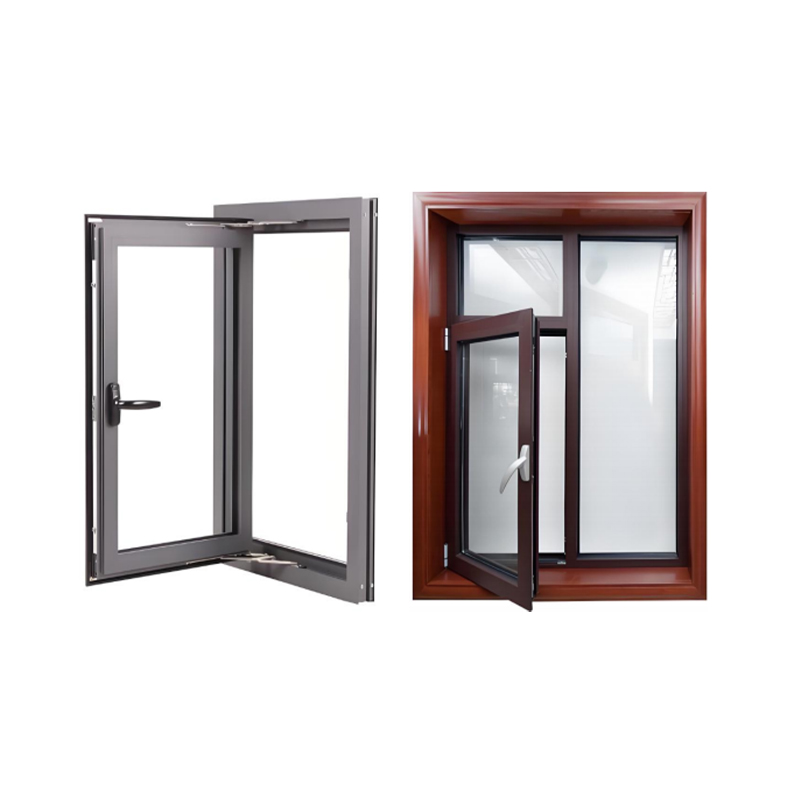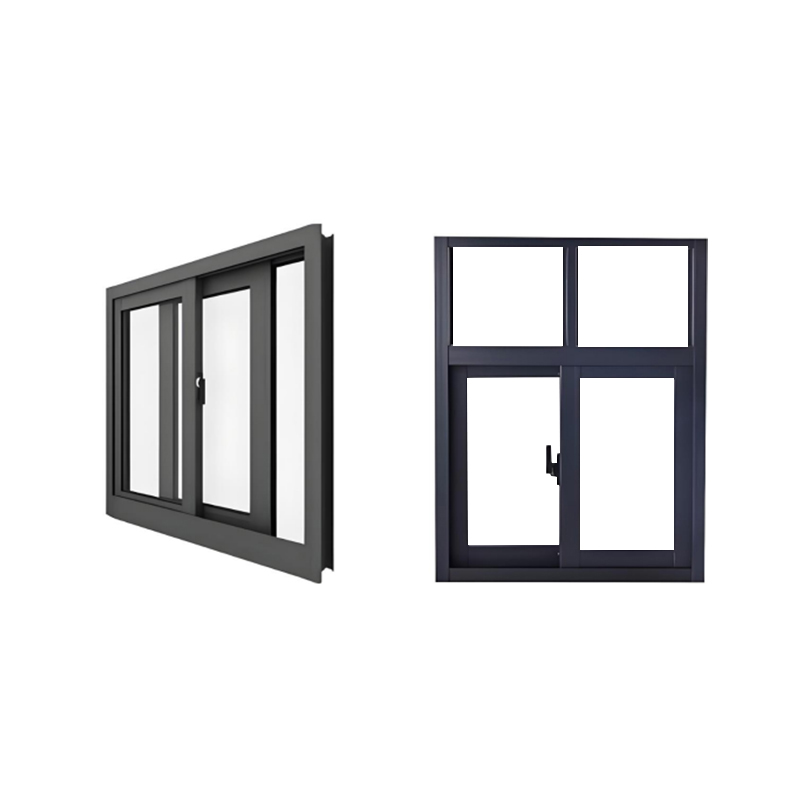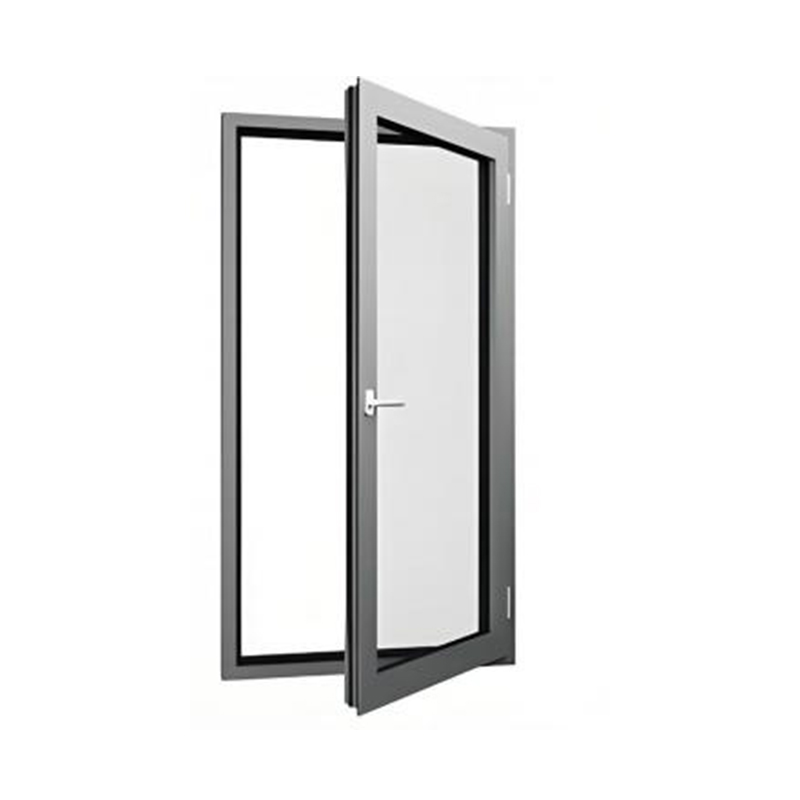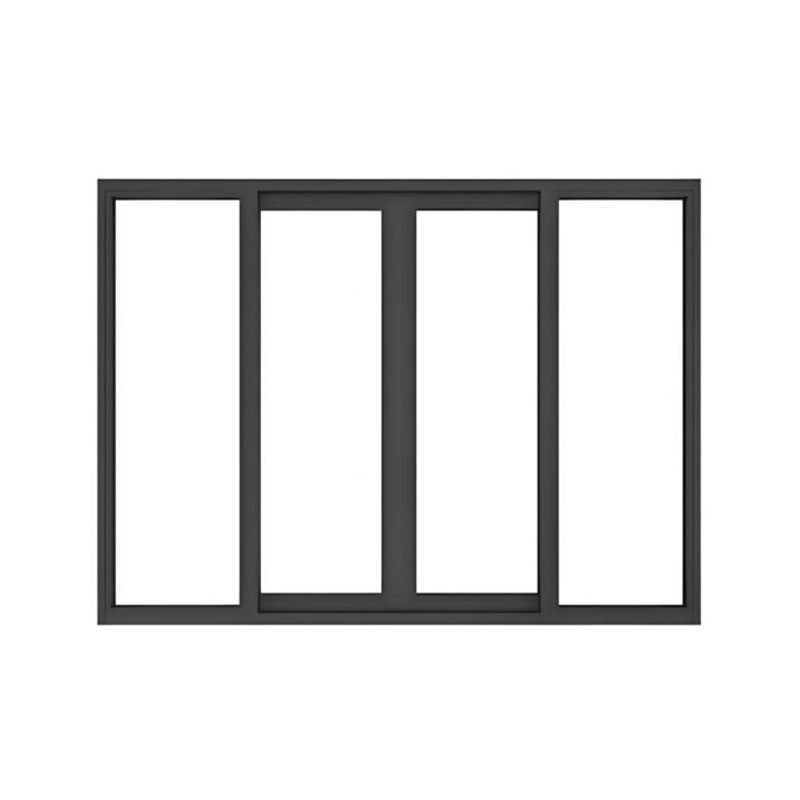Compared with traditional hinged doors, how does the sliding door perform in terms of sound insulation?
Release Time : 2025-04-29
In modern architecture and interior design, the choice of doors and windows is not only about aesthetics and space utilization, but also directly affects the comfort of living. Among them, the sound insulation effect, as one of the important indicators to measure the performance of doors and windows, has attracted more and more attention from consumers. Among the many types of doors, sliding doors and traditional hinged doors are two more common choices.
1. Sound insulation effects caused by structural differences
First of all, the most fundamental difference between the two door types lies in the different opening methods. Traditional hinged doors realize the opening and closing action through the door shaft, and the door leaf and the door frame can usually form a relatively tight closed state; while sliding doors realize lateral movement through tracks, and there is often a large gap between the door leaf and the wall or adjacent door leaf. This structural difference directly leads to different performances in sound insulation between the two.
In traditional hinged doors, because they can completely cover the door area when closed, and the closure of the door gap can be enhanced by installing sealing strips, etc., they have a natural advantage in isolating external noise. In contrast, since sliding doors need to slide freely on the track, a certain amount of space must be left between the door leaf and the wall, which inevitably forms a channel for sound propagation, thereby reducing the overall sound insulation effect.
2. Comparative analysis of sealing performance
In addition to the influence of the structure itself, sealing performance is also one of the key factors that determine the sound insulation effect. Due to the characteristics of the closing method of traditional hinged doors, high-quality sealing strips can be installed around the door frame, which effectively reduces air flow and blocks the penetration of sound waves. A high-quality sealing system can even control the sound leakage at the door gap to a very low level, improving the overall sound insulation level.
For sliding doors, although the sealing can also be improved by adding accessories such as bottom sealing brushes and side rubber strips, due to its opening mechanism, the installation position and density of the sealing strips are limited, and it is still difficult to achieve the same degree of sealing as traditional hinged doors during actual use. Especially in noisy environments such as high-rise buildings or street-facing rooms, the sound insulation shortcomings of sliding doors are more obvious.
3. The influence of material selection on sound insulation effect
Of course, whether it is a sliding door or a hinged door, the choice of its material will also have an important impact on the final sound insulation effect. Generally speaking, wooden door panels have good sound absorption and barrier capabilities due to their high density; while glass, metal and other materials are slightly inferior in sound insulation due to their own characteristics. In addition, composite doors (such as sandwich doors) can also make up for structural deficiencies to a certain extent because they are filled with sound-absorbing materials.
For sliding doors, in order to take into account the convenience of opening and visual transparency, many products will adopt large-area glass design, which undoubtedly further weakens its sound insulation function. Traditional hinged doors can flexibly choose different materials and thicknesses according to user needs, making it easier to achieve good sound insulation.
4. The influence of application scenarios and user needs
Although from a technical perspective, traditional hinged doors have more advantages in sound insulation, sliding doors are still popular in many specific scenarios due to their advantages such as space saving and convenient operation. For example, in small-sized houses, wardrobes, balconies and other places with limited space, sliding doors become an ideal choice. In functional areas such as bedrooms and study rooms that require higher privacy and quiet environment, it is more suitable to use traditional hinged doors with stronger sound insulation performance.
In addition, with the advancement of technology and the improvement of manufacturing technology, some high-sound insulation products specially designed for sliding doors have begun to appear on the market. These new sliding doors have greatly improved their sound insulation performance by improving the track structure, adding multiple sealing systems, and using high-density panels, gradually narrowing the gap with traditional hinged doors.
The difference in sound insulation between sliding doors and traditional hinged doors mainly comes from their different structural designs and sealing performance. Although most sliding doors are still difficult to match high-quality hinged doors in terms of sound insulation, this gap is gradually narrowing through reasonable material selection and technological innovation.
1. Sound insulation effects caused by structural differences
First of all, the most fundamental difference between the two door types lies in the different opening methods. Traditional hinged doors realize the opening and closing action through the door shaft, and the door leaf and the door frame can usually form a relatively tight closed state; while sliding doors realize lateral movement through tracks, and there is often a large gap between the door leaf and the wall or adjacent door leaf. This structural difference directly leads to different performances in sound insulation between the two.
In traditional hinged doors, because they can completely cover the door area when closed, and the closure of the door gap can be enhanced by installing sealing strips, etc., they have a natural advantage in isolating external noise. In contrast, since sliding doors need to slide freely on the track, a certain amount of space must be left between the door leaf and the wall, which inevitably forms a channel for sound propagation, thereby reducing the overall sound insulation effect.
2. Comparative analysis of sealing performance
In addition to the influence of the structure itself, sealing performance is also one of the key factors that determine the sound insulation effect. Due to the characteristics of the closing method of traditional hinged doors, high-quality sealing strips can be installed around the door frame, which effectively reduces air flow and blocks the penetration of sound waves. A high-quality sealing system can even control the sound leakage at the door gap to a very low level, improving the overall sound insulation level.
For sliding doors, although the sealing can also be improved by adding accessories such as bottom sealing brushes and side rubber strips, due to its opening mechanism, the installation position and density of the sealing strips are limited, and it is still difficult to achieve the same degree of sealing as traditional hinged doors during actual use. Especially in noisy environments such as high-rise buildings or street-facing rooms, the sound insulation shortcomings of sliding doors are more obvious.
3. The influence of material selection on sound insulation effect
Of course, whether it is a sliding door or a hinged door, the choice of its material will also have an important impact on the final sound insulation effect. Generally speaking, wooden door panels have good sound absorption and barrier capabilities due to their high density; while glass, metal and other materials are slightly inferior in sound insulation due to their own characteristics. In addition, composite doors (such as sandwich doors) can also make up for structural deficiencies to a certain extent because they are filled with sound-absorbing materials.
For sliding doors, in order to take into account the convenience of opening and visual transparency, many products will adopt large-area glass design, which undoubtedly further weakens its sound insulation function. Traditional hinged doors can flexibly choose different materials and thicknesses according to user needs, making it easier to achieve good sound insulation.
4. The influence of application scenarios and user needs
Although from a technical perspective, traditional hinged doors have more advantages in sound insulation, sliding doors are still popular in many specific scenarios due to their advantages such as space saving and convenient operation. For example, in small-sized houses, wardrobes, balconies and other places with limited space, sliding doors become an ideal choice. In functional areas such as bedrooms and study rooms that require higher privacy and quiet environment, it is more suitable to use traditional hinged doors with stronger sound insulation performance.
In addition, with the advancement of technology and the improvement of manufacturing technology, some high-sound insulation products specially designed for sliding doors have begun to appear on the market. These new sliding doors have greatly improved their sound insulation performance by improving the track structure, adding multiple sealing systems, and using high-density panels, gradually narrowing the gap with traditional hinged doors.
The difference in sound insulation between sliding doors and traditional hinged doors mainly comes from their different structural designs and sealing performance. Although most sliding doors are still difficult to match high-quality hinged doors in terms of sound insulation, this gap is gradually narrowing through reasonable material selection and technological innovation.







